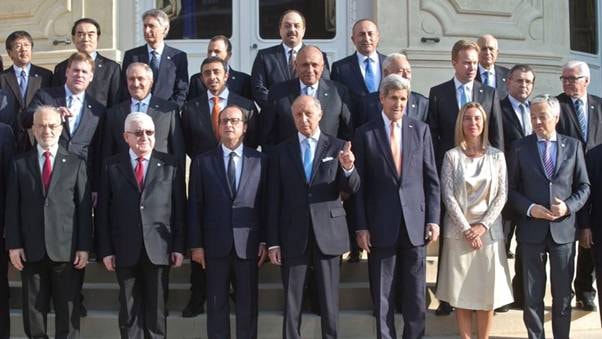The War on Terror in Europe
(Baonghean.vn)-Currently, European countries whose citizens participate in jihadist rebels are discussing and drafting laws to prevent the wave of soldiers going to Syria or Iraq.
 |
| Thirty world leaders attend the Conference on Peace and Security for Iraq held at the Quai d'Orsay, Paris / Photo: Michel Euler |
| RELATED NEWS |
|---|
In early September, British Prime Minister David Cameron wanted to pass a bill that would allow police to “temporarily” hold the passports of suspects and “time to learn about these individuals”. Until now, only the Home Office had the power to make such decisions in the UK. Authorities could restrict the places that suspects wanted to go and airlines would have to provide authorities with their passenger lists. London is also considering the possibility of banning British citizens, foreigners and dual nationals from entering the country if they are suspected of belonging to a terrorist group. However, this measure is controversial because it is contrary to international conventions.
In Germany, the government decided on Friday to ban any activity that supports IS recruitment and propaganda. At the same time, all signs and symbols referring to the organization are banned at gatherings or in any means of communication. Based on the “Organization Law” that punishes the activities of groups “against the constitutional order” and against “the principles of agreement between peoples,” Berlin also plans to put an end to the financing and recruitment of militants for jihad. On September 8, Chancellor Angela Merkel called for strict enforcement of the law against the spread of Islamism.
In Belgium, according to the newspaper Le Soir, MPs are discussing a unified plan for the fight against jihadists. Possible measures include allowing police to create fake profiles to hack into militant websites on the Internet, and setting up a National Security Council that would include the Prime Minister, Deputy Prime Minister, and the intelligence services. MPs are also considering the possibility of invoking the 1979 law banning the recruitment of foreign fighters. This law is aimed primarily at fighters returning from Syria.
In late August, the Dutch government announced a series of measures, such as revoking Dutch citizenship from jihadists even if they have not been convicted of a crime.
Currently, according to AFP figures, among the tens of thousands of foreigners who have joined the ranks of the self-proclaimed Islamic State (IS) or al-Qaeda, there are about 930 French, 400 British, 270 German, 250 Belgian and 130 Dutch. The upcoming meeting of the United Nations Security Council will take place on September 24. And at this meeting, the US hopes to pass a resolution that will bind countries to take measures to prevent their citizens from joining the ranks of extremist groups.
Chu Thanh






